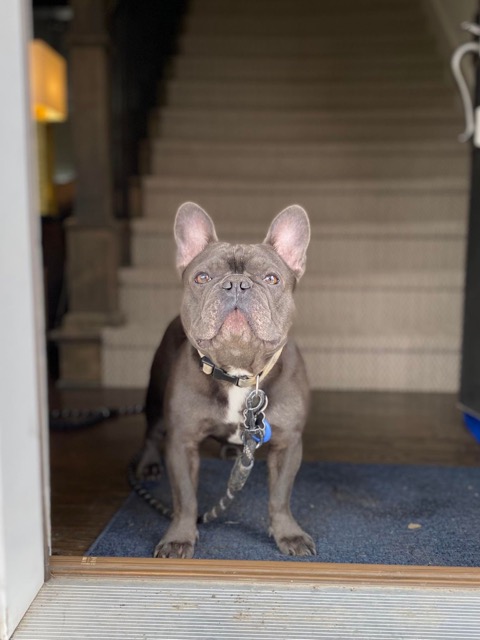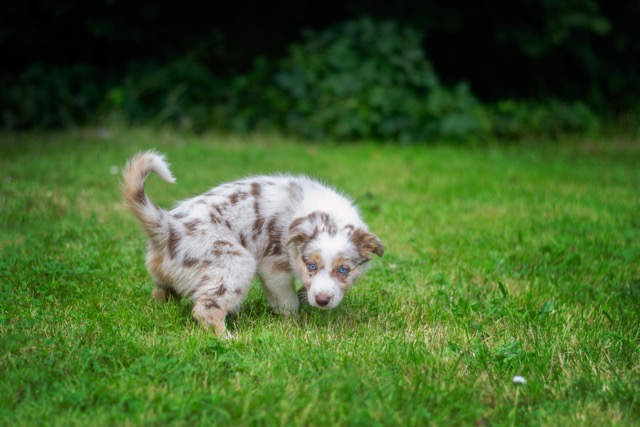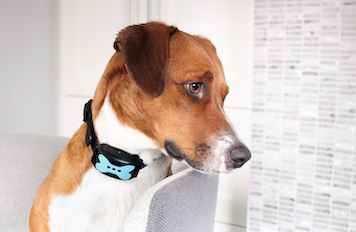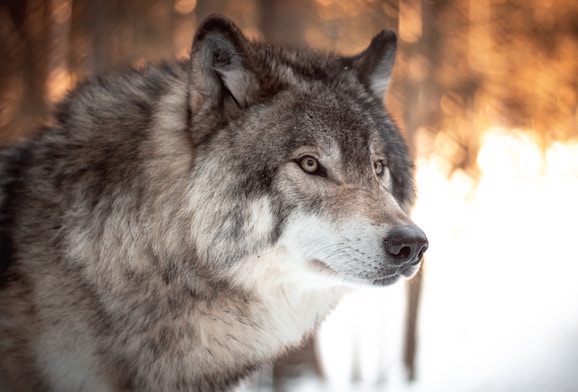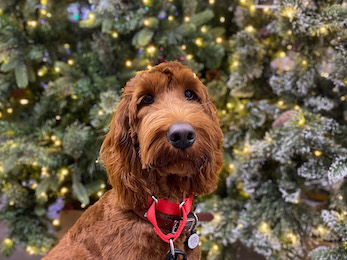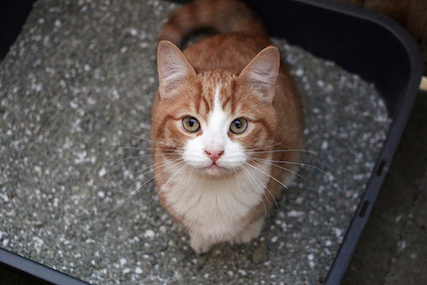House soiling refers to inappropriately urinating (or defecating) indoors. It is a common puppy problem behavior that can persist into adulthood and throughout the life of your dog. The behavior persists and worsens when a puppy or dog is not properly taught where it is okay and not okay to eliminate. A person does not have to be present for the behavior to worsen on its own and occurs independent of any social factors. When a dog soils in the house, it is important they are seen so appropriate action can be taken.
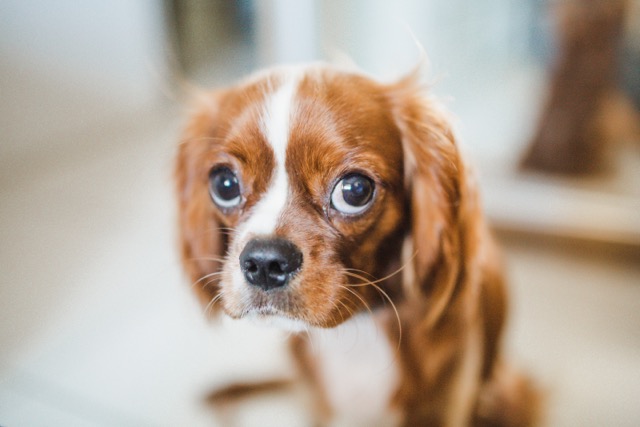
For more information about what to do, check out my blog here for an effective house soiling program.
If your dog soils in the house and you are unable to catch it, a delayed consequence is ineffective, and, not only does it hurt your relationship with your dog, but the delayed consequence creates an even larger problem behavior. What’s more is that when a dog urinates, the pressure from their bladder is relieved—just like yours! If your dog urinates inside your home without being caught, the relief of the pressure on their bladder will reinforce the house soiling. In other words, they feel better and, if the space is large enough, there is no aversion to urinating inside!
Differences between Submissive Urination and Excitable Urination
Conversely, submissive urination and excitable urination have nothing to do with your dog knowing where to or where not to eliminate.
What is Submissive Urination?
Submissive urination is an appeasement gesture that surrounds a dog being intimidated or fearful. It requires a person to be present, and even if unintentional, some degree of intimidation. If your dog submissively urinates, they are more likely the ones that were approached. As you could imagine, aspects of a house soiling protocol, mainly any verbal reprimand or quickly getting ahold of the dog, will worsen submissive urination. When corrected or quickly grabbed, dogs will urinate even more to further appease you! Instead, forgo any verbal reprimand and give your dog more space in the moment. Take note of how you might have unintentionally intimidated your dog. Avoid those actions in the future. Remember each dog has a different sensitivity level when it comes to loud noises and fast movements. For the ultra-sensitive dog who submissively urinates, I recommend they drag a leash. If you need to get ahold of them, simply take ahold of the leash and guide them. For some dogs, even grabbing their collar can be too scary and cause them to submissively urinate. Your dog has their own individual history, so if your dog submissively urinates be sure to consider any time it happens and adjust such that you are softer in your approach.
What is Excitable Urination?
Excitable urination is different than submissive urination in that the root of the behavior is not fear related. It is similar in that it is a social behavior and a person (or another dog, cat, etc.) needs to be present. If your puppy excitably urinates, they are likely the ones initiating the greeting or, at a minimum, taking part in the greeting. It is a greeting that gets a bit out of hand. The behavior is most prevalent in young puppies, but it can persist into adulthood. Dogs who have a medical concern related to the bladder or urinary tract might also urinate when excited so be sure to rule out anything with your veterinarian. If your dog does urinate excitably, I recommend toning down those moments of excitement. Have others lower their voice and interact in a calmer way. Most of the time the behavior tends to happen consistently and in a predictable manner, for example, during initial greetings. If that is the case for your puppy, be sure to have your puppy’s bladder empty prior to the greeting. An empty bladder will help reduce the likelihood of your puppy urinating when they say hello. You can build on having calm greetings and having your puppy potty before greetings can be faded over time as your puppy’s bladder control increases.
So, to the question: “why does my dog pee?” The answer is: “It depends!” As with any behavior, peeing can look identical across dogs. It’s not as simple as what the behavior looks like, it’s so much more about the variables that surround the behavior. Consider the environment and the context under which your dog is peeing. Is a person present and in close contact? Where did your dog urinate? If so, is your dog being reprimanded? Who initiated the contact? These are all questions that help to identify why your dog pees. Examining these factors will make you a pro when it comes to understanding your dog’s behavior and ultimately, improving your relationship with your 4-legged friend.
Check out my other blogs to help decode your dog’s behavior by looking beyond the dog!
